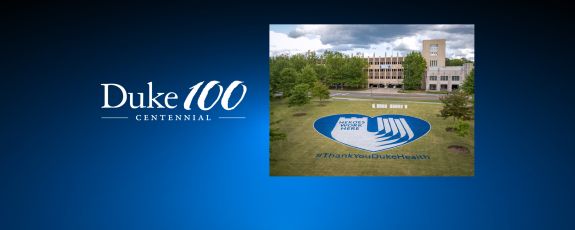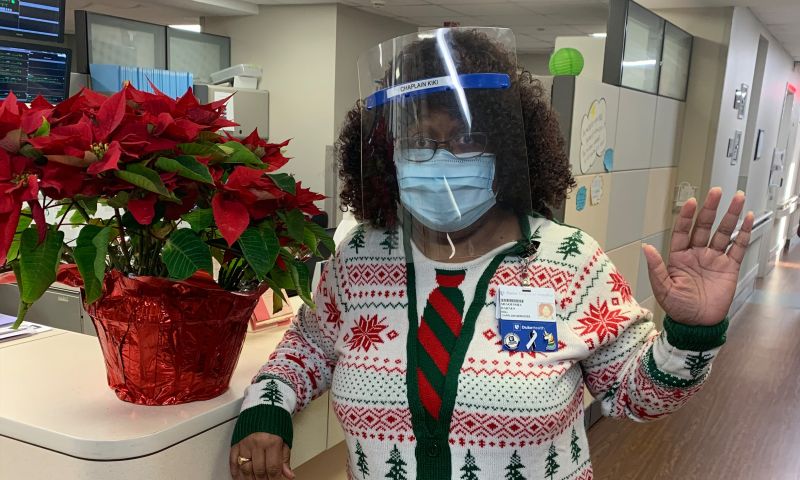
Caregivers Shine Amidst Historic Pandemic
Team members on the front lines of health care rose to the challenge of COVID-19

Serving as a chaplain in Duke Regional Hospital’s ICU during the hardest months of the COVID-19 pandemic left Kiki Barnes with wrenching memories.
Barnes remembers a dying inmate, who, while in the ICU, prayed with her over a walkie-talkie. She pictures another patient, her bed surrounded by a thicket of machines and IV stands.
It was risky for visitors, so the patient’s son requested Barnes be there as his mother slipped away.

“You’re not alone,” Barnes told the woman from the hallway, her hand pressed on the room window. “Your family loves you.”
Claiming 1.1 million American lives, the pandemic was staggering in scale.
And for Duke caregivers who responded to the coronavirus, especially during the early stages of the national emergency when vaccines weren’t available, the tragedies were experienced up-close, every day.
“We had to keep caring, we had to keep showing up,” Barnes said. “We felt that ‘This is what I have to do.’”
Duke’s institutional response showed the power of creativity and collaboration.
With masks in short supply, Duke found 381,000 blue cloth masks to distribute to students, staff and faculty.
Marshalling resources from across campus, Duke built a sophisticated surveillance testing program so some in-person classes could resume in fall 2020.

And in December 2020, when the first COVID-19 vaccines became available, Duke quickly built a vaccination operation that eventually delivered 496,815 doses to patients, employees and the public.
“I witnessed tremendous courage,” said Rhonda Brandon, Chief Human Resources Officer and Senior Vice President for Duke University Health System. “For a caregiver, this work is a calling. No matter what they’re going through, even in one of the biggest crises we’ve seen, our team members will persevere, sacrifice and do all they can to save the person in front of them.”
To keep caregivers safe, Duke’s Employee Occupational Health & Wellness (EOHW) created a hotline and network of contact tracers and case managers to support all employees exposed to the virus.
Dr. Carol Epling, Executive Director for EOHW, heard from front-line staff members who feared the virus but were driven by devotion.
“They continued saving lives despite their own personal risk,” Epling said.

Clinical Nurse Celeste Alexiou, who joined Duke in 2010, treated patients in Duke University Hospital’s ICU.
She spent hours in rooms, drenched in sweat under full-body protective suits alongside patients clinging to life as machines pumped oxygen directly into their blood.
When her 12-hour lockdown-era shift ended each evening, she walked across campus amid an eerie quiet.
Witnessing losses up close, coupled with hearing members of the public question the severity of the pandemic, led to a level of frustration that briefly prompted Alexiou to contemplate stepping away from patient care.
But her passion for the work was more powerful than the pandemic.
“At the end of the day,” said Alexiou, “it’s still very satisfying for me to care for those who are critically ill and be there for people in the most vulnerable time of their lives.”
Do you have a story you would like for us to cover for the Centennial year? Send ideas and photographs through our story idea form or write working@duke.edu.
Follow Working@Duke on X (Twitter), Facebook, and Instagram.